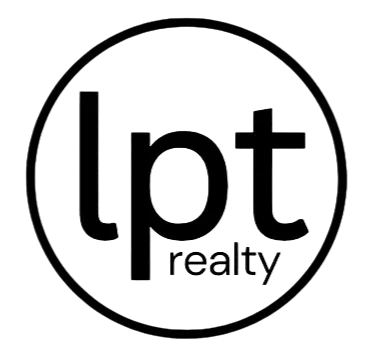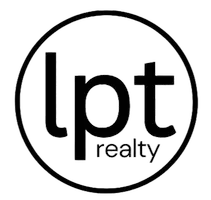Building Credit When You're Preparing to Buy a Home in Hampton Roads
If you’re thinking about buying a home in Virginia Beach, Chesapeake, Norfolk, or Suffolk, one of the first stepping stones isn’t touring neighborhoods — it’s understanding your credit. Many buyers assume they begin with a specific score, but the truth is simpler: you start with no credit at all. Your score is something you build over time through consistent financial habits.
Most people earn their first credit score within three to six months after opening their first account. That initial number often falls somewhere between 500 and 650, depending on how responsibly you manage your very first lines of credit. And while that range may feel low, don’t stress — it’s only a starting point, not a life sentence. Every strong credit profile starts with a blank page.
What Does Your Credit Score Start At?
When you begin your credit journey, scoring models need time to understand your habits. That’s why your first score typically appears in the 500–650 range.
What influences where you land?
-
On-time payments: Even one late payment can drag you down early on.
-
Credit utilization: Using a small portion of your available credit (under 30%, ideally under 10%) signals responsible behavior.
-
Type of credit: Credit cards, student loans, auto loans, and small installment loans all shape your early score differently.
Don’t get hung up on this starting number. Most homebuyers who take their credit seriously see major progress within the first year.
When Does a Credit Score Show Up?
Credit scoring models typically need at least three months of activity before generating a score. That means:
-
One credit account must be open for 3+ months
-
The lender has reported activity to the bureaus
-
There is enough data to evaluate your habits
The more consistently you use your account — and pay on time — the faster your score appears.
Do You Need a Credit Card to Build Credit?
Not necessarily. Credit cards are common tools for building credit, but Hampton Roads buyers have several other options.
Ways to Build Credit Without Traditional Credit Cards
-
Secured credit cards (deposit-based)
-
Credit-builder loans offered by community banks/credit unions in Hampton Roads
-
Student loans
-
Auto loans
-
Becoming an authorized user on a trusted family member’s account
-
Programs that report rent or utility payments
Many first-time buyers here start with a secured card or credit-builder loan, since they’re safe, predictable, and designed to help you build confidence and good habits.
How to Check if You Already Have a Credit Score
It’s surprisingly easy to find out:
-
Pull your free annual credit reports at AnnualCreditReport.com
-
Use credit monitoring from your bank or credit card company
-
Check apps like Credit Karma (good for general tracking, but not your exact mortgage score)
You likely have a score if:
-
You’ve had an account open for a few months
-
You’ve received billing statements
-
You’ve been offered additional credit or preapprovals
And if you discover you don’t have a score yet—that just means today is the perfect day to start building one.
How Long Does It Take to Build Good Credit for a Home Purchase?
If you're planning to buy a home in Hampton Roads, here’s a realistic timeline for building mortgage-ready credit:
3–6 Months: Your Score Appears
-
First credit score is generated
-
Early positive habits begin shaping your profile
-
You may move into the “fair” credit bracket
6–12 Months: Noticeable Progress
-
Consistent payments and responsible usage build momentum
-
Many people cross into “good” credit territory
12–24 Months: Strong Buying Position
-
Your accounts have meaningful age
-
Your payment history becomes one of your strongest assets
-
“Excellent” credit becomes achievable
Want to accelerate the process?
-
Keep balances under 10%
-
Pay everything on time
-
Don’t close older accounts
-
Avoid applying for multiple loans/credit cards
With consistency, most buyers can get into mortgage-ready range much faster than they expect.
Is No Credit Worse Than Bad Credit When Buying a Home?
Great question — and one we hear from first-time buyers moving to Hampton Roads all the time.
No Credit
Pros:
-
You’re a blank slate
-
Negative marks aren’t dragging you down
Cons:
-
Lenders have no history to evaluate
-
You may need secured or beginner products
-
Larger purchases often require a co-signer
Bad Credit
Pros:
-
You already have established credit lines
Cons:
-
Past mistakes lower your score
-
You’ll face higher rates and stricter approvals
-
Recovery takes time and consistent effort
Which is better?
In most cases, no credit is easier to fix than bad credit, but both situations are temporary. With the right habits, buyers in either scenario can get mortgage-ready sooner than they think.
Your Credit Journey Starts Now — and It Leads to Homeownership in Hampton Roads
Whether you're dreaming of a home near the Virginia Beach oceanfront, a quiet neighborhood in Greenbrier, or a historic home in Ghent, your credit is the financial foundation that gets you there.
Focus on:
-
Making payments on time
-
Keeping balances low
-
Choosing credit tools that fit your lifestyle
-
Being patient and consistent
Every responsible move builds toward the moment you’re handed the keys to your first (or next) Hampton Roads home.
If you'd like, I can also help you:
📌 Create a step-by-step credit-building plan
📌 Understand what credit score you need for VA, FHA, and conventional loans
📌 Build a tailored timeline for buying your home in Hampton Roads
Just tell me!
Categories
- All Blogs (65)
- Buyer Stories (1)
- Buyer Tips (7)
- Buyers (7)
- Buying (7)
- Buying Advice (14)
- Buying Assistance (7)
- Chesapeake (2)
- Conventional Loans (1)
- Credit & Debt (1)
- Down Payment (3)
- FHA Loans (4)
- Financing (3)
- First Time Homebuyer (1)
- Foreclosures (1)
- Military (1)
- Norfolk (2)
- Personal Finance (1)
- Portsmouth (2)
- Refinance (1)
- Schools (20)
- Suffolk (1)
- Title & Closing (1)
Recent Posts












